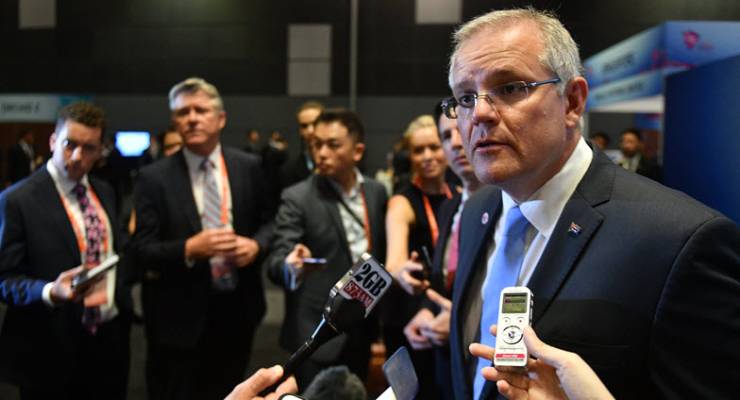
Crikey readers came out in force yesterday to discuss what they would like to see from political reportage. Thoroughly examining policy, following the money and keeping the bastards honest were all key requests. Elsewhere, readers pointed out some of the nuances of the Liberal Party’s problem with women.
On fixing political reporting
Matt Kendall writes: This election, I would like to see journalists boning up on the topic and data being covered in each presser in order to preempt and actively challenge politicians on the spot with any misrepresentations, obstructions and lies — with other journalists in the pack backing them up and restating the question if the politician tries a dodge.
Dave Burrows writes: Follow the money. When someone represents big money, say so and determine the potential benefits to that person or group from the position they espouse. Especially relevant to climate change deniers.
Mary Wood writes: I would like to see coverage of what I consider the malignant influence of lobbyists in parliament; federal and state.
Mike Buky writes: A section in each edition called “Corruption Watch”. With the Coalition’s ICAC designed to examine corruption through a blind eye, the reporting would keep you busy and readers attracted.
Laurie Forde writes: Perhaps the first step towards ethical political journalism would be for journalists to regard themselves as a professional body responsible for upholding the principles of the MEAA rather than as individual employees of a particular organisation.
Julie Monton writes: Reporting that: one, accurately reports the pollie or party’s statement or position; two, gives an overview of the evidence around said statement or position (relevant studies, specialist opinions, etc); three, summarises any gaps between those statements/positions and the evidence and opinions from those most experienced and most qualified to know.
Adam Wright writes: I would like to see some research on every piece of legislation in both houses in this past parliament, with how each MP voted. Was it simply how the party directed them to vote? What had they been saying publicly on that issue; did they vote according to what they had been telling the public, or quite differently?
Catherine Rossiter writes: The most important issue for 2019 is climate change. We see good articles by environment and science journalists, but very little from the political journalists, yet the world is currently on track for a catastrophic situation in the coming decades.
On the Liberals’ women problem
Ebony McKenna writes: There’s a thought bubble that Jane Hume might give up her chance at six years in the senate in the No. 2 spot and move to the lower house, but I see she’s already “thought long and hard about it” and decided no. I wouldn’t either. Guaranteed six years or chance at only three, in what will become a marginal seat? Looking forward to the election.
Barry Welch writes: We saw how much the Coalition cares for women when Pyne and Abbott refused to give Tania Plibersek a pair when she was about to go into labour when Labor was a minority govt. Only the outrage of a few brave Liberal women delivered some decency.
Send your comments, corrections, clarifications and cock-ups to boss@crikey.com.au. We reserve the right to edit comments for length and clarity. Please include your full name if you would like to be considered for publication.







Crikey is committed to hosting lively discussions. Help us keep the conversation useful, interesting and welcoming. We aim to publish comments quickly in the interest of promoting robust conversation, but we’re a small team and we deploy filters to protect against legal risk. Occasionally your comment may be held up while we review, but we’re working as fast as we can to keep the conversation rolling.
The Crikey comment section is members-only content. Please subscribe to leave a comment.
The Crikey comment section is members-only content. Please login to leave a comment.